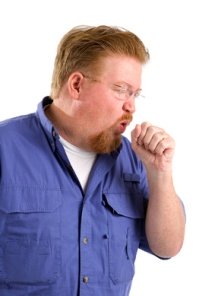Find a Mold Specialist Now
Click or Call, Toll-Free 24/7
Black Mold Allergy Symptoms
Black mold allergy symptoms are similar to symptoms of other environmental allergies such as pollen, dust and other types of mold. It should be noted that allergy symptoms are not the only problems that can result from black mold in the home. Black mold produces toxins called mycotoxins and they can make you very sick in a number of ways. In addition to common allergy symptoms, exposure to mold can cause fevers, exhaustion, weakness, general malaise, depression, poor short-term memory and trouble with concentration. The elderly, the very young and those with pre-existing health problems are at greater risk for allergy symptoms and other mold-related health problems.
Common Black Mold Allergy Symptoms
When someone that is allergic to black mold comes into contact with it, their immune system responds as if it’s something extremely hazardous. They begin to produce a chemical called histamine, which is what causes the allergy symptoms.
Symptoms of black mold allergy include runny nose, congestion, coughing, sneezing, wheezing when you breathe, watery eyes or red and irritated eyes, rash or hives, headaches and shortness of breath. Sinus infections, sore throat or throat infections can also result, along with fever.
Symptoms vary in severity from person to person and not every person experiences every possible allergy symptom. Symptoms can be very debilitating for some people, and sometimes lead to the development of more serious health problems such as asthma attacks.
Other types of household mold can also cause allergy symptoms and other health problems. The truth is that no type of mold is healthful in our homes.
Treating Black Mold Allergy Symptoms
Over-the-counter medications may help relieve your mold allergy symptoms. Your doctor can also prescribe antihistamines and decongestants to help relieve more severe symptoms. If you’re not sure if your symptoms are due to a mold allergy or something else, your doctor can order some tests to try to narrow down the cause. If at any point you begin to have difficulty breathing, call 911 or go directly to the nearest emergency room.
Keep in mind that while your doctor can offer treatment for some of your allergy symptoms, as long as you continue to live in a home where you are regularly exposed to black mold, you’ll continue to experience symptoms, which may increase in number and severity over time. Also keep in mind that some symptoms may not go away immediately upon eliminating the black mold in your home. It can take your body some time to recover.
In order to get rid of black mold allergy symptoms for good, you’ll need to get rid of all the black mold. That’s not as easy as it might sound because mold can hide in all kinds of places. Check bathrooms, attics and basements. Check under sinks, behind and under kitchen appliances, behind toilets, in the water pans of self-defrosting refrigerators, in your washing machine, in dryer vents, in heating and air conditioning ducts, in garbage cans, inside window air conditioning units, in mattresses, in foam pillows, under carpets and inside walls. If that sounds overwhelming to you, you’re not alone. Mold removal specialists can help make sure you’ve removed all the black mold from your home so that your allergy symptoms will not return.
Some people prefer to save money by cleaning up mold themselves instead of hiring a professional, and in some cases that’s fine, but if you are experiencing symptoms of mold allergies you should not attempt to deal with a household mold problem yourself. That would just expose you to even more mold, likely making your symptoms worse.
When You Need to Call in a Professional
- The Environmental Protection Agency (EPA) recommends calling a professional to assist with mold removal if you have large areas of mold (three square feet or larger).
- If you have mold, or suspect you have mold, in your heating and air conditioning ducts, you need an experienced professional to remove it safely.
- If you have mold in your walls, under your carpet, or anywhere else that you don’t have the knowledge or skills to address, call a professional.
- If you are having symptoms of exposure to mold, don’t attempt to remove the mold yourself. You’ll only exposure yourself further and make your symptoms worse.
- If you have asthma or any kind of respiratory problems, you should not attempt to remove mold yourself. It may trigger an asthma attack or otherwise make your condition worse.
You can arrange for a free consultation with a mold removal professional. Even if you decide to do the job yourself, you’ll get valuable information and you’ll be under no obligation. You can find a professional in your city here.
Return From Black Mold Allergy Symptoms To Health Effects of Black Mold
Black Mold Health Symptoms Home Page





